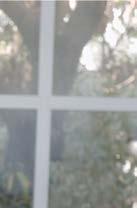

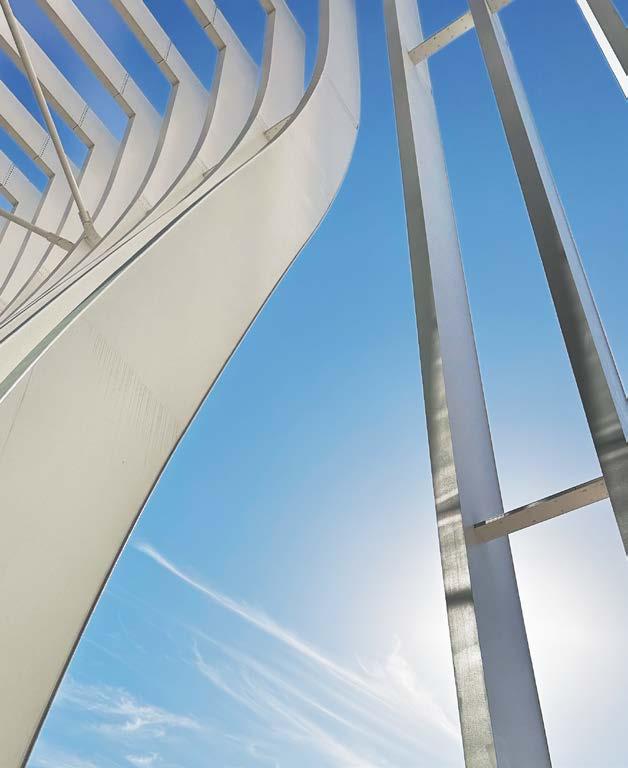
Tel Aviv University Annual Report 2024 Israel: Where To?
Cover image: Detail of TAU's new Roman Abramovich Building for Nano and Quantum Science & Technology
CONTENTS
President's Message | p. 1
TAU and the War | pp. 2-19
Officers | p. 20
Chairwoman's Message | p. 21
Projects | p. 22
Distinctions | p. 25
Campaign | p. 26
Developments | pp. 26-32
Annual Report 2024 Tel Aviv University
PRESIDENT'S MESSAGE
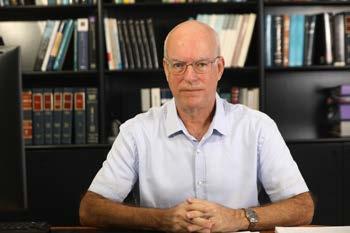
This year’s report is dedicated to Tel Aviv University’s response to the horrific events of Oct. 7 and the ongoing war that is convulsing Israel, the Middle East and the world. From the earliest morning hours of Oct. 7, the University has played a leading role in the civic response to the crisis, aided in great part by an outpouring of donor support. In parallel, almost 7,000 of our students have sacrificed long months of their lives in IDF reserve duty. Seventeen TAU students fell in the war, and altogether some 70 families in our Tel Aviv University community have lost a loved one in this conflict. Our hearts are with them, as well as with the hostages and their families, the injured, and the displaced residents of the North and South. Along with sponsoring dozens of intervention and volunteer activities for those directly affected by the war, TAU conducted multidisciplinary research aimed at identifying best practices for medical and psychological response, improving Israel’s emergency preparedness, and reinforcing social resilience. However, today, some seven months into the war, it is clear that our focus needs to turn to the future, both of Tel Aviv University and of Israel.
An immediate challenge is ensuring that our reservist students are provided with all the academic and financial resources they need to overcome time lost on the battlefield. Mediumrange needs include countering the alarming growth of calls abroad to boycott Israeli academia; in response, we need to expand and promote our international study and research collaborations. We also have to make a major push to fight brain drain by bringing home to Israel talented researchers to renew our faculty ranks.
Long-range needs will require a long-term investment. TAU will be key to rebuilding Israel’s society, security, technological prominence and economic strength after the war. Moreover, we have ambitious plans for new projects in biomedical sciences, the environment, democracy, student services and many more critical fields. For that purpose, the University is launching a new fundraising campaign this year for increasing TAU’s endowment to $1 billion and thus providing a steady source of income for growth.
I count on the commitment and generosity of our friends around the world to help us achieve our goals for TAU and Israel. Our dear supporters are also standing aside us in solidarity during this difficult period, and for that we are deeply grateful.
 Prof. Ariel Porat President, Tel Aviv University
Prof. Ariel Porat President, Tel Aviv University
1
FIRST 100 DAYS OF WAR
Oct 7
• 6:30 am: Rocket sirens throughout Israel
• 7:00 am: Hamas infiltrates
• 11:30 am: TAU starts emergency hotline for students and their families
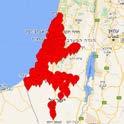
Oct 9
TAU announces Emergency Fund to help with war effort, by December will have raised $6M from supporters worldwide
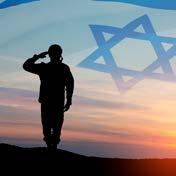
• State of war officially declared
• 300,000 reservists called to active duty, including over 6,500 TAU students
8
Oct 12
• Universities postpone start of semester to November 5th
• TAU units begin collecting supplies for soldiers and evacuated families
• Goldschleger Dental School opens a free first aid clinic for soldiers and evacuees; School faculty and other TAU experts join daunting forensic efforts to identify victims
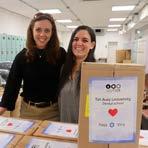

Israeli Association of University Heads (VERA) publishes a letter warning Universities abroad against supporting terrorism: “We all share the responsibility to educate our communities“
Oct 15
Oct
2
Oct 19
Pictures of over 1,000 persons abducted, missing, or killed in Hamas attack displayed on empty seats in Smolarz Auditorium as part of international UNITED AGAINST TERRORISM initiative
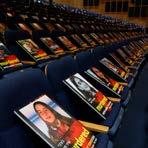
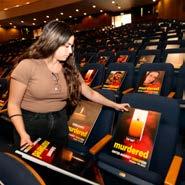
Oct 23
Oct 21
• First hostages released
• TAU Lowy International students create Israel War Story, a social media initiative to combat misinformation
• Al-Ahli Hospital blast
• The TAU community volunteers to help evacuees with meals, childcare, legal needs, and housing
Oct 17
NYT issues apology for premature inaccurate coverage of hospital blast

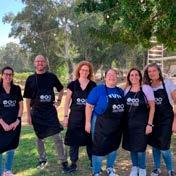
• The Steinhardt Museum of Natural History reopens with free admission, buses in displaced families, and sends counselors to evacuee centers for nature learning sessions
• TAU announces each student in reserves will receive NIS 1,000 in tuition aid
Oct 30
Annual Report 2024 Tel Aviv University 3
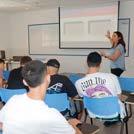
Nov 9
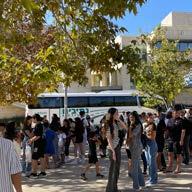
Nov 21
Hundreds of schoolchildren evacuated from Kiryat Shmona resume their schooling, hosted in TAU classrooms and labs
TAU announces second round of scholarships for all student reservists

• Houthis launch ballistic missiles toward Israel from Yemen
• First of over 800 TAU students and staff head south in groups to harvest crops for evacuated farmers

Oct 31
TAU's Fleischman Faculty of Engineering sets up a command center connecting directly between the IDF's technological units and the University's researchers. Engineering teams solve immediate battlefield challenges with mechanical design solutions, 3D printing of parts, chip optimization, and more.
Nov 13
• 7:00 am: First ceasefire comes into effect, Israeli hostages exchanged for Palestinian prisoners
• Start of academic year postponed again to December 24th
• Last day of ceasefire
Nov 30
Nov 24
4
Dec 1
UNWomen finally acknowledges gendered violence on October 7th after 56 days of war
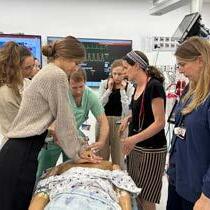
Dec 3
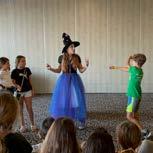
At this point, over 1,000 TAU community members have volunteered in hospitals, call centers, day cares, makeshift schools, farms, factories and kitchens – all sponsored by the University. Others provide free legal aid, theatrical and musical performances, injury rehabilitation, and more.
Presidents of 3 top US Universities say in a congressional hearing that calls for Jewish genocide “depend on the context”
Dec 5
Dec 7
VERA slams “context” comments: “Resolute leadership appears to be lacking at the moment...a nation that permits a call for genocide in the guise of freedom of speech does a disservice to its values.”
Dec 9
UPenn President Elizabeth Magill resigns; Harvard president Claudine Gay does so one month later
Annual Report 2024 Tel Aviv University 5
Dec 10
Start of school year postponed, yet again, to December 31st
Dec 12-14
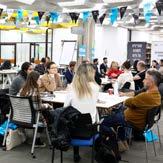
TAU’s Entrepreneurship Center hosts 300 people from 16 academic institutions at a hackathon to tackle the challenges that will remain after the war
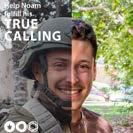

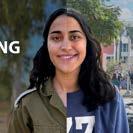
TAU announces the Uniform to University Scholarship Campaign to ease reservists’ transition back to student life after fighting in Iron Swords
Dec 21
South Africa files International Court of Justice case accusing Israel of genocide; 3 TAU community members help make Israel’s case
Dec 29
6
Dec 31
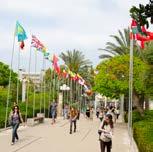
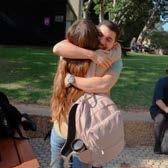
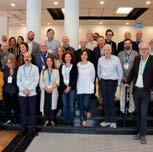
Jan 4
A solidarity mission of UPenn professors spends the day at TAU learning about the trauma-related fallout of Iron Swords. Harvard, Yale, UCLA, Stanford and other top universities will soon after send delegations of their own.
2023-2024 school year begins! Students return to campus with several thousand still on reserve duty
TAU opens trauma treatment clinic to help curb the estimated 30,000 PTSD cases to result from war.
TAU National Trauma Center Head Yair Bar-Haim: “We have harnessed TAU's academic and therapeutic resources to provide an immediate response to as many sufferers as possible."
Jan 1

• TAU marks 100 days of war with speakers and community gatherings
• 4pm: TAU members ring bells for one minute, joining the international “One Million Bells” initiative showing solidarity with hostages
Jan 14
Annual Report 2024 Tel Aviv University 7
Tel Aviv University Emergency Fund by the Numbers
100% of all donations were used for TAU’s civic effort
• Raised $6 million globally
• Granted two rounds of tuition scholarships to 6,863*
TAU students called up for IDF reserve duty
• Received over 150 weekly referrals to new post-trauma treatment clinic; expect to provide expert counseling to 1,000 IDF and civilian PTSD patients within a year
• Sponsored 2,335 sign-ups in kitchens, farms and factories, especially in the south, by volunteers from among the TAU community
• Hosted classroom studies of 600 evacuated children from Kiryat Shmona
• Provided frontline medical and social work care to people affected by the war by 1,100 TAU professors and students
• Held 80 nature learning sessions for 2,400 displaced children and adults at evacuee centers, and hosted 1,232 more on campus, by the Steinhardt Museum of Natural History
• Assisted 452 students requiring immediate psychological counseling
• Purchased 500 “DreamChanger” kits to help war-traumatized kids overcome nightmares.
* As of early April
Annual Report 2024 Tel Aviv University 8
#TAU CALLING

The Uniform to University Scholarship Fund
The Uniform to University Scholarship Fund was launched to provide the academic and financial assistance needed to ease returning reservists’ transition back to studies. Here’s a couple of brave students who came back to pursue their true calling – becoming the bright future of Israel.
Dina, 24 years old, recipient of a Schulich Leader Scholarship
IDF Role: Captain, Special Operations in the Cyber Defense Directorate
Studies: Computer Science and Entrepreneurship
Calling: Entrepreneur

Dina was on a trek in Nepal and was nearly stranded when the war broke out, but she managed to return on a rescue flight and went straight to her base for reserve duty. There she helped with communications in critical war operations. “The experience filled me with pride every day,” she says. “But I felt like I was in parallel worlds as I tried to simultaneously keep up with school and support those around me.” Dina is in her second year as a Schulich Leader, a national program for undergraduates in STEM disciplines. An outstanding high school student, she also began developing her social leadership skills early on as a volunteer fire fighter in her hometown of Or Akiva in northern Israel, and by attending a mixed Arab-Jewish pre-army leadership academy before serving five years as an officer in an IDF cyber unit. Says Dina: Over the past six months my scholarship assistance has been especially meaningful, allowing me to focus on my reserve duties, studies, and personal growth.
Avraham, 31 years old, Trailblazers Program
IDF Role: Major, Infantry; Company Commander
Studies: Electrical Engineering
Calling: Inventor
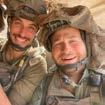
“We fought for three months straight but I was willing to pay this price,” says Avraham (pictured right), who is a part of TAU’s Trailblazers Program, a specially tailored framework for students coming out of the Haredi (Ultra-Orthodox) educational system who wish to earn a university degree. His classmate in his TAU studies, Itzhak (left), also in Trailblazers, was his second-in-command in the combat in Gaza – “his being there with me gave me strength,” says Avraham. Originally from Tivon, Avraham parted from the Haredi community at age 23, in the middle of his military service as an officer. He says that engineering fascinates him, and that he dreams of inventing something that will improve people’s lives.
9
TAU Launches Israel’s Largest PTSD Treatment Clinic
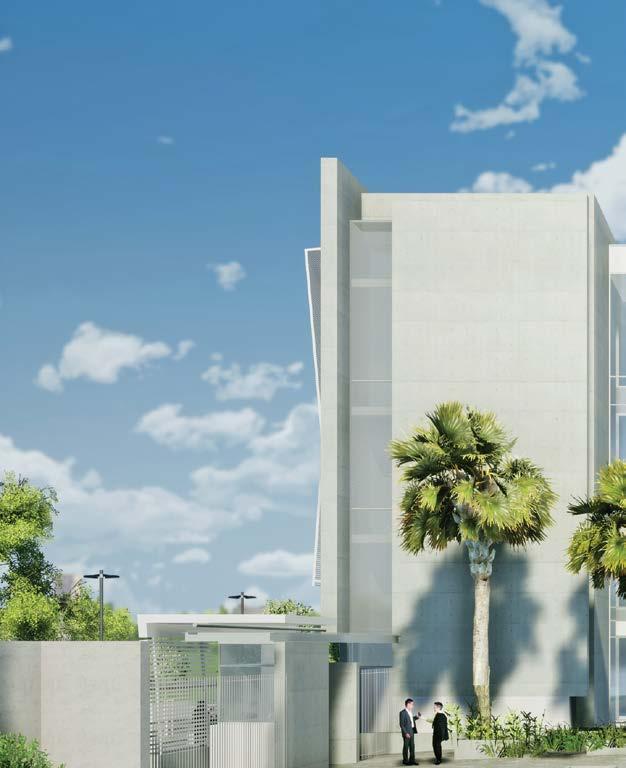
The Oct. 7 catastrophe and subsequent war demanded a change of plans for TAU’s planned trauma clinic, initially expected to open in 2025 but now fast-tracked into immediate operation
The Clinic serves as the therapeutic arm of TAU’s National Center for Traumatic Stress and Resilience, which is headed by Prof. Yair Bar-Haim (Social Sciences) and combines research, training and intervention in the field of post-trauma and related mental health disorders. Planned to open with the completion of the Miriam and Moshe Shuster Building next year, the clinic was instead given temporary campus space and – with funding from caring donors – welcomed patients in early January 2024. The Clinic is now treating large numbers of IDF soldiers and reservists, other security personnel, and civilians, in collaboration with the IDF and Israel’s National Insurance Institute. Its team of 33 psychologists is led by Dr. Ofir Levi (Social Sciences), former commander of the IDF’s Unit for PTSD.
What makes TAU’s PTSD treatments unique?
• Administered only by experienced post-trauma experts
• Personalized for each patient
• Embedded in a research environment and evidence-based
• A source of findings and insights shared with the IDF and Ministry of Defense, Ministry of Health, HMOs, and mental health practitioners across Israel
10

The Miriam and Moshe Shuster Building for the Center for Traumatic Stress and Resilience, currently under construction
Annual Report 2024 Tel Aviv University 11
Campus-Wide War Research
Snapshots of civil society and philanthropy
Following the outbreak of the Iron Swords war, TAU’s Institute for Law and Philanthropy, directed by Prof. Guy Mundlak (Law), began holding webinar sessions for sharing an upto-the-minute picture of the home front that could be used effectively by the philanthropic field. At the 11 meetings held, an update was given by various professionals and members of the Institute’s partner organizations – the Forum of Foundations in Israel and JFN Israel. The goal of these “Snapshots” was to guide donors and foundations in directing resources toward vulnerable groups, both in immediate emergency responses and in the long-term. Topics discussed included mental health, youth evacuees, hostages and missing persons, education, welfare, women at risk, people with disabilities and antisemitism on campuses.
Sensing the war from up above
Throughout the Iron Swords war, the Remote Sensing Lab, led by Prof. Eyal Ben-Dor (Exact Sciences) of the Porter School of the Environment and Earth Sciences, provided significant technical assistance to the IDF, the Ministry of Environment, and other bodies involved in the war effort. Remote sensing refers to the use of satellite- or aircraft-based sensor technologies to detect, classify and monitor objects on Earth. For example, following Oct. 7, the Lab deployed its drone fleet to search for missing bodies, contributing to crucial search and rescue efforts. The Lab also provided high-resolution battlefield images from space, mapped war debris, and documented land changes resulting from the war, among other research activities.
Researching best practices for social workers in mass emergencies
Faculty members from the Bob Shapell School of Social Work are working with a trove of data from the ongoing post-Oct. 7 situation to research trauma and help improve the first response by social workers and other care givers in the future. Among their projects are: investigating the implications of trauma on bodily perception and orientation; assessing the impact of the war on young, at-risk adults; studying the dual battle of cancer-stricken children against the backdrop of the war; working with soldiers and professionals who were involved in identifying and burying victims from the Oct. 7 attacks; assessing the emotional status of child hostages released from captivity; endeavoring to boost resilience among evacuated communities; and exploring the experiences of reservist soldiers who lost brothers in arms.
Controlling the nervous system from afar
Dr. Dekel Rosenfeld (Engineering), recruited from MIT and a 2021-22 Zuckerman Faculty Scholar at TAU, works at the intersection of materials science and neuroscience. She develops minimally invasive approaches using nano-based biocompatible tools to safely deliver signals to cells in the body and control the nervous system remotely. For example, she and her team are currently developing methods to control stress hormone release from the adrenal gland and monitor its correlation with symptoms of PTSD and anxiety. Dr. Rosenfeld hopes her research will expand the potential of minimally invasive stimulation techniques so they can eventually be used on other organs in the body.
12
Improving PTSD treatments with psychedelics
The Institute for Psychedelic Research at the Sagol School of Neuroscience, supported by Mr. Jeremy Coller, Dr. David B. Katzin, and Dr. Dmitry Repin and headed by Prof. Talma Hendler (Social Sciences and Medical & Health Sciences), has begun clinical trials examining the potential of psychoactive substances such as ketamine and synthetic psilocybin to enhance treatment efficacy, speed and sustainability for long-lasting PTSD. Combined with talk therapy and other psychological support, trials show that these drugs’ effects on the brain can help it “re-code” traumatic memories, leading to expedited improvement.
Grinding away anxiety
Many people find themselves grinding their teeth or clenching their jaw during stressful moments. This behavior, called “bruxism,” is correlated with stress coping strategies but can cause pain and tooth damage. Because of its connections to stress and anxiety, TAU Goldschleger School of Dental Medicine
DMD student Noa Ventura is using a bruxism tracking app to assess its prevalence in the TAU student population during the Iron Swords War. The study may help advance understanding of how anxiety and resilience affect the muscular actions of bruxism. It will also provide a window into the mental and dental health of TAU students as compared to less stressful times, thanks to control data collected in 2020.
How organizations can manage chaos
As our world becomes more turbulent, organizations must manage ever-shifting situations and increasing fragility. Prof. Orly Yehezkel (Management) studies leadership methods that create “antifragile organizations” by finding ways to bolster resilience and even thrive in the face of constant change. When Oct. 7 plunged Israeli organizations into incredible chaos, Prof. Yehezkel took the opportunity to analyze how managers kept operations afloat. She showed how Israeli leaders are using innovative and adaptive “antifragile” strategies to fortify their organizations against the effects of the ongoing Iron Swords war.
Investigating the tie between severe stress and MS
Prof. Alon Kalron (Medical & Health Sciences) of the Stanley Steyer School of Health Professions received a grant from TAU’s Colton Center for Autoimmunity to investigate the impact of the Iron Swords war on stress, coping strategies and risk of relapse and disease progression in people with multiple sclerosis (MS). New data will help clarify whether there is a direct relationship between the two, a question which is yet to be answered conclusively. In the event that a significant relationship is found, identifying successful coping strategies among MS patients could be instrumental in the management of the disease.
Learning the tough lessons
Researchers at the Stanley Steyer School of Health Professions are focusing their scientific work on Israeli frontline responses to the war. Their research topics since Oct. 7 include emergency care in hospitals near Gaza; mental health of nurses and other caregivers; ethical dilemmas in treating enemy combatants; and the well-being of survivors. In times of war, nursing, physical therapy, occupational therapy and communication disorders treatment – all at the Steyer School – serve as pillars of hope and healing, restoring not just bodies but also spirits, and fostering resilience and community amid adversity.
Parenting in wartime
The Iron Swords war has put incredible pressure on families, especially those with young children. To better understand how children and their parents are coping, TAU’s Jaime and Joan Constantiner School of Education ran a number of studies. Three of these studies looked at the parenting behaviors and well-being of Arab and Jewish parents, evacuees, and mothers in general. Honing in on parents and education, data was collected on parental involvement in schools during times of crisis; this will augment existing data from the COVID-19 pandemic. Turning the focus to children, research was conducted on their strengths and difficulties during wartime and on adolescents’ use of social media. Suggestions to parents were generated for helping and protecting children.
Annual Report 2024 Tel Aviv University 13
How do we achieve security in the Middle East?
The discourse around the Israel-Hamas conflict has highlighted a global lack of general knowledge of Middle East politics and history as well as widespread susceptibility to misinformation. In an effort to inform and clarify, Prof. Daphna Joel (Social Sciences), with colleagues Prof. Daphna Hacker (Humanities and Law) and Dr. Ronit Levine-Schnur (Law), initiated the interdisciplinary “Day After the War Forum” which engages in comprehensive research and numerous public awareness activities. Collaborating with research institutes, policymakers and NGOs, Forum members are outlining paths to end the war, rehabilitate the Gaza Strip, solidify a broad Middle East political alliance against Jihadist extremism, and ensure long-term security for Israel.
Strengthening local leadership under fire
In the aftermath of Oct. 7, immense pressure fell upon devastated towns and cities to care for their suffering constituents. To help bolster capabilities, TAU’s BloombergSagol Center for City Leadership, headed by Prof. Moshe Zviran (Management) and CEO Idit Bar, worked with municipalities and mayors in the Gaza envelope and around Israel to help address and manage the many new and urgent challenges. Programs included a command center to connect those in need with resources such as food, supplies and housing by liaising between government and civilian services; a study assessing the most pressing needs and weak points of municipalities; and a widely-used platform which allows local leaders to support each other and share best practices. Michael Bloomberg himself arrived in April to show support.
Providing environmental solutions
The course, "Introduction to Environmental Engineering," taught by water expert Prof. Hadas Mamane Steindel (Engineering), combines technological and social entrepreneurship to develop solutions for pressing environmental challenges. This year, the course focused on solving real-time problems from the front lines, for example reducing single-use plastics by the IDF by supplying army units with portable dishwashers; modeling and analyzing war-related environmental pollution from burning cars and destroyed buildings to come up with bestpractice recommendations; and improving the technology for monitoring and combating illegal construction-related waste dumping. The course is run in cooperation with the community-action TAU Impact program of the University’s Student Success Center.
Studying rocks to understand tunnels
Dr. Igor Berinskii (Engineering) and his group work on projects that focus on geo-mechanical properties of sedimentary rocks typical to Israel. One project tries to improve high-performance rock drilling and excavation. Another develops seismic barriers that can reflect and absorb severe ground waves caused by earthquakes. Although not directly related to the current war, the results of both projects already piqued the interest of national defense research units, since the same analytic methods can be used to solve problems related to the effective access to, and destruction of, deeply located underground tunnels and other structures.
Detecting PTSD via smartwatches
In a study that demonstrates the unprecedented amplifying effect of mass media on mental health in terror and war settings, Profs. Dan Yamin and Erez Shmueli (both of Engineering), together with Dr. Shahar Lev-Ari (Medical & Health Sciences), highlighted the potential of continuous health data monitoring for early detection and prompt treatment of PTSD symptoms in indirectly affected individuals. The researchers analyzed data from an ongoing three-year study in which 4,800 participants received smartwatches and completed daily questionnaires as part of a nationwide clinical survey on COVID-19 effects. Among participants not directly exposed to Oct. 7 events, the findings estimated PTSD prevalence to be 22.9-36.0% and moderate to severe anxiety prevalence to be 22.9-55.32%, indicating higher stress levels than those reported in previous difficult situations, including the COVID-19 pandemic, political disputes and past armed conflicts.
14
Restoring nature affected by war
Humans are not the only ones affected by the devastation of war: wide swaths of wild or rural land in Israel’s north and around the Gaza border were burned and trampled during military operations against Hezbollah and Hamas. Many of the affected areas are home to unique flora and fauna, with some rare species found nowhere else in Israel. Several of the damaged landscapes are iconic nature sites that support local tourism. Now, in an effort to rehabilitate these wartorn landscapes back to their original state, TAU’s Steinhardt Museum of Natural History, jointly with JNF-KKL, initiated the Center for Ecological Restoration and Nature-Based Solutions. Headed by ecologist Noam Ben-Moshe, who recently completed a PhD in Zoology at TAU, the Center will create a set of tailored protocols as tools and guidelines for the IDF to restore the damaged ecosystems after the war. More broadly, the Center aims to advance scientific knowledge and professional training on ecological restoration in Israel and to serve as a bridge between researchers and practitioners.
Accessible intervention tool for posttrauma
Prof. Yael Lahav, a clinical psychologist, and Dr. Oren Asman, Director of the Samueli Initiative for Responsible AI in Medicine (both of Medical & Health Sciences), developed an AI-assisted online platform offering immediate psychological support for trauma-related distress. Its key advantages are early intervention, personalization of treatments, improved user retention, and the potential to assist countless users. Developed in cooperation with other PTSD experts and volunteer Microsoft developers, the platform employs an extensively researched therapy technique that validates the users' feelings of distress while alternately stimulating the left and right sides of their brain to strengthen their resilience. The treatment is widely accessible through a series of video sessions that users can view on their smartphone or computer. The research team plans to begin user trials shortly.
Using forensic seismic evidence as a defense tactic
Seismic noise-field analysis can be a powerful tool for monitoring enemy activity. Dr. Asaf Inbal (Exact Sciences), of the Porter School of the Environment and Earth Sciences, examined seismic wave precursors to the Oct. 7 Hamas attack on Israel. Due to a lull in human activity in Israel during the early morning hours leading up to the attack, Israeli seismic stations located near the Gaza Strip picked up on Gazan vehicle traffic that was part of the massive mobilization taking place there. Dr. Inbal used these seismograms to identify abnormal ground motions, associate them with pre-attack mobilization, and precisely determine their location. This suggests that embedding seismic noise-field analysis into decision-making protocols could enhance preparedness, deter terrorist attacks and reduce the number of casualties in the future.
Predicting the political weather
Recent years have seen significant global upheaval. The ability to predict geopolitical developments and outcomes accurately is needed more than ever. To help with this effort, Prof. Michael Gilead (Social Sciences) combines psychological principles of human judgment with machine learning to improve forecasting ability and to sound the alarm when grave errors are likely. In recent work, he and his lab team gathered predictions from 1,200 Israeli and international participants concerning the Iron Swords war. They studied how emotions and biases stirred up by the war skewed individuals’ predictions, which often aligned with their own hopes for the future. These findings illuminate how distress affects public thinking in ways that could lead to detrimental consequences at institutional and state levels. Going forward, political forecasters and policymakers may be able to use Prof. Gilead’s models to refine predictions and improve the strategic reasoning of decision makers.
Annual Report 2024 Tel Aviv University 15
PERSPECTIVES
TAU’s
Woman at the UN
Gender studies expert Prof. Daphna Hacker (Humanities and Law), Israel’s representative to the United Nations Committee on the Elimination of Discrimination against Women (CEDAW), speaks on the UN’s response to sexual violence of Oct. 7
“My first year on CEDAW was really exciting and I was so impressed by everyone’s professionalism. It's the most diverse, strongly feminist group that I've ever been part of. But the last session I attended was just after Oct. 7, and that was rough and disappointing. They issued this half-page, horribly embarrassing statement that didn't even say “Hamas” once. I have to admit, I was surprised by the outcome. Until then I didn't feel that this was a terribly politicized committee, but I discovered there were underlying political motives that I hadn’t noticed before.
Placing what happened in CEDAW in the broader context of the reaction of feminist, UN and left-wing organizations
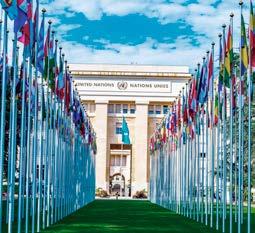
in the US and other Western countries, it seems that for many, it is very hard to perceive Israel as the victim. Israel is a flourishing country. So people are not able to recognize that this time we were facing a murderous terrorist organization that did atrocities. There is simply so much ignorance and disinformation.
International law has recognized rape as a weapon of war, as something done by an enemy against a nation. So, we know it is not a coincidence that Hamas raped and violated women. Unfortunately documentation was complicated because in all of the chaos, Israeli authorities did not gather forensic evidence of sexual violence in the moment. There was no precedent for doing so; never in Israeli history was the enemy in civilian villages for eight hours or more, free to do whatever they want. And of course, the hostages. Never in Israeli history were tens of women taken.
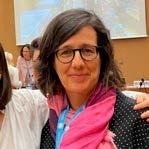
International bodies were in theory trying to be cautious about accuracy. But to not even condemn Hamas, and to leave out the gendered violence as part of a long list of undeniable atrocities in those first few weeks – to me, this is simply cruel antisemitism and anti-Israelism. Eventually the UN published a report unequivocally acknowledging that sexual assaults were committed on Oct. 7. That was a big accomplishment for Israeli feminists who insisted on a UN investigation.
We can be cynical and think we shouldn’t bother with these international efforts, but at the same time, we can't do without them. Forsaking our global connections when Israel is so small and in a hostile neighborhood can’t end well, and we’ve seen this with other countries too.”
This was abridged from an interview, the full version of which is here: english.tau.ac.il/partnerships/Daphna_hacker_UN
16
Prof. Hacker at UN headquarters in Geneva
Israeli Trauma on Screen
Film critic and scholar Prof. Shmulik
Duvdevani (Arts), of the Steve Tisch School of Film and Television, speaks on Israeli cinema before and after Oct. 7
“Since the beginning, our cinema has dealt with what defines Israeli identity, or with the difficulty of defining it. We have so many populations and viewpoints that are foreign or even diametrically opposed to each other, especially in the last year. We cannot even agree on our physical borders. I think Israeli cinema gives form and shape to these myriad stories by exploring the often-conflicting histories and traumas of different Israeli groups.
One of the biggest themes we grapple with is the line between victim and perpetrator. Jews have been victims for so many years that conceiving of ourselves as aggressors creates cognitive dissonance. One common way we see this is through the Israeli soldier on screen, for example in Waltz With Bashir. This is a film that could only be made in Israel. It's a filmmaker using artistic tools to look back at the trauma of his military service during Israel’s invasion of Lebanon in 1982, while also dealing with issues that Israeli film is concerned with: memory, guilt, accountability, and personal versus national narratives.
Another revealing film is Legend of Destruction about the end of the Second Temple and the exile of the Jewish People from the Land of Israel. Oct. 7 was something like the destruction of the temple in that it was a disaster that tapped into our oldest existential fears as Jews and Israelis.
Finally, Image of Victory about the War of Independence depicts how the Israeli and Palestinian narratives cannot really be separated. Its message is that you can’t tell one without the other, even though we have tried many times.
After the current war ends, I think Israeli cinema is going to change drastically. This trauma was like nothing we have ever witnessed – we cannot go back to telling the same old stories and dealing with the same old conflicts. Israeli filmmakers will have to completely rethink how they deal with the aesthetics, ethics, and narratives of trauma. They will probably have to deal with the event very explicitly and directly. There is no doubt in my mind that whatever cinema and documentaries come out in two or three years will have a profound effect on Israeli viewers and on Jewish ones the world over.”



This was abridged from an interview, the full version of which is here: english.tau.ac.il/news/Israeli_Film
Middle: Legend of Destruction, directed by Gidi Dar Bottom: Image of Victory, directed by Avi Nesher
Annual Report 2024 Tel Aviv University 17
Top: Waltz With Bashir, directed by TAU alumnus Ari Folman
Report from the Campus Battlegrounds
Three TAU PhD alumni share experiences from post-Oct 7 life on elite US university campuses
Dr. Shai Zilberzwige-Tal Post-doc at MIT, Boston
Earned PhD from TAU’s Shmunis School for Biomedicine and Cancer Research
Recipient of TAU Argentinean Friends PhD Fellowship
I began my post-doc at MIT in September 2022. Having adapted to the constant threats in Israel, my move to America initially felt like a respite. However, the events of Oct. 7 sharply turned that around. The shattered sense of security post-October made being Jewish and Israeli feel like having a target on my back. Hesitating to enter the lab, or spending over an hour gathering the courage to leave my car, became a stark reality. Moreover, during the Oct. 7 weekend, only two close friends from the lab expressed concern, highlighting a surprising lack of broader support.
MIT’s failure to condemn the actions of Oct. 7 deviated from their past practices during similar conflicts. The attempts of the university administration to stay neutral felt like betrayal. Demonstrations calling for the genocide of Jews created an atmosphere of fear and vulnerability on campus, threatening the essence of our academic community and challenging my belonging to an institution I considered home for the past year. This feeling became palpable when my young son asked if he, too, was Jewish. I often think about his question—how innocent but also how fraught.

During this period, I discovered that sharing my personal story as an Israeli, and as someone who served in the IDF as a paramedic both in the Gaza Strip and in the West Bank, became the most effective means of providing insight to others. I encountered surprising questions, like whether we are all white or if there are redheads in Israel. Yet, I recognized it as my mission to educate. Some of my colleagues’ willingness to ask questions, learn and understand, left a lasting impression and served as a testament to the power of genuine curiosity and empathy.
Tensions escalated further when an unauthorized encampment was established on MIT's lawn. The protestors even went so far as to send threatening emails to MIT faculty associated with Israel or with grants linked to the Israel Defense Force. About this time, I faced a dilemma when applying for an additional fellowship in the US. I was unsure whether to disclose my involvement in the Jewish and Israeli community, fearing it could jeopardize my chances. This internal conflict underscores the discomfort many of us feel in navigating the dynamics of today’s campuses.
Despite the complexity of the situation, we refused to remain silent. Organizing a support rally in the greater Boston area within three days of the encampment demonstrated our resilience and determination. The outpouring of support following the rally reaffirmed that our efforts are not in vain, inspiring us to continue fighting for our rights and dignity on campus and beyond.
Annual Report 2024 Tel Aviv University 18
Dr. Ziv Ben-Zion
Post-doc at Yale University, Connecticut
PhD from the Sagol School of Neuroscience
Recipient of travel grants from the Sagol School and Adams Super-Center for Brain Studies
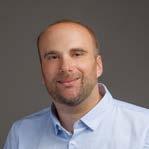
I've been fighting antisemitism even before Oct. 7. When I arrived at Yale in the summer of 2021, I encountered a one-sided statement titled "Resource on Palestine" published by the Yale Postdoctoral Association. Working with fellow Israeli postdocs, it took us over a year of navigating hurdles to publish a comprehensive counter-response, providing a more balanced perspective of the Israel-Palestine conflict.
Since Oct. 7, antisemitism has increased. My research field happens to be in PTSD, so it was natural that I would mention the Oct. 7 events in a recent talk at an international conference about trauma & stress in LA. I spoke from the bottom of my heart about the most horrifying trauma that happened in Israel's history less than a month earlier. A trauma that somehow almost no one cared to mention at that event. An ongoing trauma that prevented almost all Israeli participants from arriving at the conference that year. And yet, after several complaints about me, I was summoned for a hearing with the conference organizers about not including the topic in the abstract of my speech and using difficult language without a proper disclaimer.
Back on campus, I lobbied and fought for an additional two months until I was able to publish an opinion piece, "Free Palestine from Hamas," in the Yale Daily News. After seeing how much antisemitism there is in US academia, I'm definitely not going to stay here – I plan on coming back to work in Israel’s academic institutions.
Dr. Zohar Arnon
Post-doc at Columbia University, New York
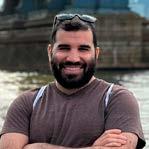
PhD from TAU’s Shmunis School of Biomedicine and Cancer Research
Recipient of the Marian Gertner Institute for Medical Nanosystems Research Excellence Award and Joan and Jaime Constantiner Travel Fellowship
I've been at Columbia since April 2021. Before Oct. 7, it was pretty great to walk around. It's a very serene, beautiful place. I loved walking on campus with my dog because it has nice lawns and lots of dogs come to play sometimes.
The days after Oct. 7 were very different. The earliest protests against Israel came long before the ground operation in Gaza began and the hate in the eyes of the protestors was intense and immediate. It was clear that those are anti-Israel protests, and not pro-Palestinian. Signs of the hostages we put up were torn down in a matter of hours. People started wearing keffiyehs on campus. They were making a statement and it was making me feel unsafe walking around.
I don't understand how people decide to side with a religiously fanatic terror organization and not with another western democracy that is obviously doing much more to uphold the standards of civil society, warfare and humanity…I just don't get it.
My future plans are to stay in academia, specifically at Tel Aviv University. Current events didn't change this one bit. If anything, they made me want to come back home even more.
19
TAU OFFICERS
Lay Leaders

Chairwoman of the Board of Governors



Shirley Porter
Executive Council
Deputy Chairperson of the Board of Governors


Prof. Jacob A. Frenkel, Mr. Robert Goldberg, Mr. Michael H. Steinhardt Chairmen Emeriti of the Board of Governors
Campus Leaders
Prof. Ariel Porat
President
Prof. Mark Shtaif Rector
Mr. Gady Frank Director-General
Prof. Milette Shamir
Vice President, International
Prof. Dan Peer
Vice President for Research and Development
Prof. Neta Ziv
Vice President for Equity, Diversity and Community
Mr. Amos Elad
Vice President for Development and Alumni Affairs
Prof. Eyal Zisser
Vice Rector
Prof. Yaron Oz Pro-Rector
Prof. Yael Steinhart
Dean of the Coller School of Management
Prof. Rachel Gali Cinamon
Dean of the Lester and Sally Entin Faculty of Humanities
Prof. Yishai Blank
Dean of the Buchmann Faculty of Law

Deputy Chairperson of the Board of Governors
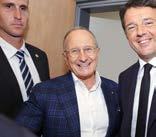
Prof. Noam Eliaz
Dean of the Iby and Aladar Fleischman Faculty of Engineering
Prof. Abdussalam Azem
Dean of the George S. Wise Faculty of Life Sciences
Prof. Itai Sened
Dean of the Gershon H. Gordon Faculty of Social Sciences
Prof. Karen Avraham
Dean of the Faculty of Medical & Health Sciences

Dr. Anita Friedman
Chair of the TAU Global Campaign, Vice Chairperson of the Board of Governors
Prof. Eran Neuman
Dean of the Yolanda and David Katz Faculty of the Arts
Prof. Tova Milo
Dean of the Raymond and Beverly Sackler Faculty of Exact Sciences
Prof. Drorit Neumann
Dean of the Student Success Center
Prof. Liat Kishon-Rabin
Dean of Innovation in Teaching and Learning
Dr. h.c. Dame
Dr. h.c. Josef Buchmann
Ms. Dafna MeitarNechmad
Dr. h.c. Sylvan Adams
Dr. h.c. Boaz Dotan
Dr. h.c. Jeremy Coller
20
Vice Chairmen of the Board of Governors
CHAIRWOMAN’S MESSAGE
In my greetings last year, I was upbeat: Israel celebrated its 75th anniversary and TAU marked the successful completion of a 10year, $1 billion campaign. What a difference a year makes. Now both the country and the university community are reeling from the relentless pain of Oct. 7 and the Israel-Hamas war. It is hard to find words that provide comfort and encouragement. But in spite of this difficult situation, I say we can and should be hopeful, even optimistic. Israel is a strong nation and Tel Aviv University is a strong institution. Our fate is intertwined and we will prevail.
Drilling down, look at the remarkable ways Tel Aviv University can contribute to “restarting” the Startup Nation, and not just scientifically and technologically, but also socially. Let’s begin with our own campus community that is a national model for pluralism, open dialogue and fair chances. At Tel Aviv University, all groups in society – women, men, Jews, Arabs, secular, religious, periphery, disabled – can thrive and fulfill their academic and career dreams. A country that embraces the talents and creativity of all its citizens cannot help but succeed!
In response to the strong wave of antisemitism and antiZionism sweeping the world, Tel Aviv University can also help. We can provide a safe haven and outstanding academic experience for Jewish students at our Lowy International School. TAU can also bolster academic exchange and collaboration with leading universities globally – giving more students and researchers abroad an alternative, positive view of Israel.

travels and meetings with our Governors, friends and alumni after the war: Are you optimistic? Join us.
Here's hoping for the immediate return of the hostages, the rehabilitation of the wounded and a happy homecoming for evacuees.
With warm regards,
 Ms. Dafna Meitar-Nechmad Chairwoman, Board of Governors Tel Aviv University
Ms. Dafna Meitar-Nechmad Chairwoman, Board of Governors Tel Aviv University
Annual Report 2024 Tel Aviv University 21
2024 PROJECTS
TAU Emergency Fund
• Argentinean Friends of TAU
• Blavatnik Foundation, USA
• Jeremy Coller, UK
• Judy and Stewart Colton, USA
• Karen Cook Annual Giving Fund, UK
• Ariel David, Italy
• Boaz and Varda Dotan, Israel
• Kathy Fields-Rayant and Garry Rayant, USA
• French Friends of TAU
• Jon Gray, USA
• Jewish United Fund of Metropolitan Chicago, USA
• Koum Foundation, USA
• LL&P Philanthropies, USA
• Magbit Foundation of Greater Los Angeles, USA
• Jack, Joseph and Morton Mandel Foundation, Israel
• Dafna Meitar-Nehmad, Israel
• Steven and Carol Moss, Australia
• Scheinberg Foundation, Israel
• Peter and Elaine Smaller, Australia
• Michael Steinhardt, USA
• Wynn Family Charitable Foundation, Canada
• Yad Hanadiv, Israel
Academic Development
• Alrov Digital Medicine Center – Alrov Properties and Lodgings, Ltd., Israel
• Support for the Raymond and Beverly Sackler School of Chemistry – Aminolab Ltd./ Blumenthal Family, Argentina
• General University Support Fund – Ursula BechtolsheimerKipp, Switzerland
• Support for the Zimin Institute for Engineering Solutions Advancing Better Lives – Breakthrough Foundation, UK
• Future of Russia Research Initiative – Anatoly Chubais, Chairman, Israel Association for Russia Studies, Israel
• Coller Dolittle Prize for Inter-Species Communication –Jeremy Coller Foundation, UK
• Support for the Irwin Cotler Institute: Democracy, Human Rights, Justice – Ariela and Irwin Cotler, Canada
• Support for the Institute for National Security Studies –Crown Family Foundation, USA
• Founding Support for Ehud Barak Center for Leadership –Mick Davis, UK
• Support for the Deutsch Institute of Computer Sciences –Alejandro Tomas Deutsch, Argentina
• Support for the Institute for National Security Studies –Goldman-Sonnenfeldt, USA
• Godfrey and Maureen Gould Annual Lecture on MS and Other Neurodegenerative Diseases – Godfrey Gould Legacy, UK
• Support for the Institute for National Security Studies –Granoff Fund
• Support of Ofakim “New Horizons” Teachers Training Program in Jewish Studies – International Jewish Relief Limited, Israel
• Arnold & Sue Carol Isaacson Fund to Combat Antisemitism and Uphold Human Rights at the Irwin Cotler Institute –Canada
• Founding Support for Ehud Barak Center for Leadership –Michal and Avraham Kadar, USA
• Jan Koum Center for Nanoscience and Nanotechnology –USA
• Support for the Institute for National Security Studies –Sidney and Ruth Lapidus Fund, USA
22
• Support for the Coller School of Management – Lorry Lokey Trust, USA
• Support for the Institute for National Security Studies –David Lowy, USA
• Founding Support for Ehud Barak Center for Leadership –Frank Lowy, Australia
• Mandel Center for Public Humanities – Jack, Joseph and Morton Mandel Foundation, Israel
• University General Support – Manfred Namm and Hilda Namm Revocable Trust, USA
• Support for the Institute for National Security Studies –Leonid Nevzlin, Israel
• Support for the Institute for National Security Studies –Prometheus Trust Nadav Foundation, USA
• Support for the ExactSHE Mentorship Program in Exact Sciences – Bruce and Ruth Rappaport Foundation, Israel
• Support for the Institute for National Security Studies – Jay S. Ruderman, USA
• Center for Applied Research on Risks to Democracy –Anonymous, Israel
• Sieratzki Institute for Advances in Neuroscience – Sieratzki Charitable Trust, UK/Germany
• Support for the Institute for National Security Studies – Paul Singer, USA
• Sara Vered Fund for Protecting Democracy, Combating Antisemitism, and Israel Studies – Canada Research
• SoLED Safe Water Research Project – Asper Foundation, Canada
• Renewed Support for the Aufzien Family Center for the Prevention & Treatment of Parkinson’s Disease – Aufzien Foundation and Noni K. Aufzien, USA
• Support for Research of Prof. Ram Fishman (Social Sciences) – Bayer-Nitsan, Israel
• Support for Research of Dr. Tal Laviv (Medical & Health Sciences) – Chan Zuckerberg Initiative, US
• Support for Research of Prof. Audrey Addi-Raccah (Humanities) – Circle of Service Foundation, USA
• Support for Occupational Therapy Research of Dr. Orit Bart (Medical & Health Sciences) – Stewart and Judith Colton, USA
• Research in the Quest for the Origins of Modern Humans in the Levant – Dan David Foundation, Italy
• Charles, Evelyn and Sandra Dolansky Research and Treatment Program for Suicide Prevention – Canada
• Support for the Elia Family Eye Research Fund – Vanessa Elia, USA
• Support for Cosmology Research of Prof. Yoel Rephaeli (Exact Sciences) – Joan and Irwin Jacobs, USA
• Support for Communication Disorders Research of Prof. Liat Kishon-Rabin (Medical & Health Sciences) – Klaff Family Foundation, USA
• Krigsner Initiative for Disease Research – Miguel Gellert Krigsner, Brazil
• Research Award for Transformative Technologies and Innovation for Health – Mauerberger Foundation Fund, South Africa
• Support for Research of Dr. Lior Mayo (Life Sciences) –Isidore Philosophe, Canada
• Support for Research of Prof. Anat Achiron (Medical & Health Sciences) – Isidore Philosophe, Canada
• Support for Research of Prof. Halina Abramowicz (Exact Sciences) – Weisfeld Family Charitable Foundation, Canada
• Renewed Support for Polymath Program – Eric & Wendy Schmidt Fund for Strategic Innovation, USA
• Equipment Fund for Research of Prof. Moshe Kol (Exact Sciences) – Wolfson Foundation, UK
• Support for Research of Prof. Ilan Tsarfaty (Medical & Health Sciences) – Anonymous, Israel
Campus Development
• Renovation of Avraham Agmon Floor in Recanati Building –Gil Agmon, Israel
• Renovation of Engineering Student Lounge in Memory of Fallen Students – Amdocs, Israel
Annual Report 2024 Tel Aviv University 23
• Expansion of Azrieli Architecture Building project – Azrieli Foundation, Canada
• Drimmer-Fischler Family Stem Cell Core Laboratory for Regenerative Medicine – Canada
• Renovation of Humanities Classroom in Memory of Irene and Brent Greenman – Debbie Giron, Israel
• Helmsley Medical Simulation Center – Leona M. & Harry B. Helmsley Charitable Trust, USA
• Sergio Boim Honigsfeld Entrance Foyer and Plaza of the Smolarz Family Building – Argentina
• JNF Canada / Barbara Seal C.M. Study Lounge – Canada
• Kosower Conference Room in Dean of Medical & Health Sciences’ Suite – Prof. Nechama Kosower, Israel
• Selwyn-Cameron Laboratory – Eva Selwyn, Wallace Cameron, & Australian Friends of TAU (Vic)
• Support for the Miriam and Moshe Shuster Building for the Center for Traumatic Stress and Resilience – Anonymous, Israel
• Susan and Halfon Shweicki Garden and Scholarships –Susan Shweicki, Israel
Student Aid and Fellowships
• Support for the Irwin Cotler Fellowship Program at the Irwin Cotler Institute – Irwin Beutel Foundation, Canada
• The Crown Graduate Fellowship Program in the Sciences –Crown Family Foundation, USA
• Abraham Z. Freudenheim Endowed Scholarship Fund –Ellen Freudenheim, USA
• Scholarship Fund for Medical Students – Estate of Avigail Kapulski, Israel
• Khazanov Graduate Fellowship Fund – Leonid Khazanov, Israel
• Klass Family Doctoral Fellowship Fund in Deafness Research – Daniel & Marisa Klass, Canada
• Mimi Kook Prize for Outstanding Research in History – Amir Kook, Israel
• Nechama and Edward Kosower PhD and MD-PhD Fellowship Fund – Prof. Nechama Kosower, Israel
• Scholarships for BSc in Digital Sciences for High-Tech at Fleischman Faculty of Engineering – monday.com, Israel
• Support for Scholarships – Schwarz Foundation, USA
• Financial Aid Scholarships – Riwka Shapiro, Switzerland
• Baruch Tegegne Scholarship Fund for Students of Ethiopian Descent –Yaffa (Tegegne) and Benjamin Ahdoot, Canada
• Renewed Support for the Schulich Leader Scholarships –United Jewish Appeal of Greater Toronto, Canada
• Weisfeld Family Charitable Foundation Scholarship Fund –Canada
• Support for “Yahalom” Program for ASD Students –Weisfeld Family Charitable Foundation, Canada
• Periphery Student Scholarships – Amos Wilnai, USA
• Periphery Program Scholarship Fund – Yad Hanadiv, Israel
Community
• Marine Exhibition at Steinhardt Museum – P. Howard Edelstein and Family in Memory of Anna and Edward Edelstein, USA
• Support for Science, Technology and Math Leadership Program for Arab Youth – Klarman Foundation, Israel
• Helen Sarah Steyer & Thomas Mark Steyer Fund for Treating Trauma-Related Disorders – USA
• Renewal of Science, Technology and Math Leadership Program for Arab Youth – Yad Hanadiv, Israel
Listed: Projects of $100,000 and above, by alphabetical order within categories
24
DISTINCTIONS
Prof. Amnon Aharoni, Exact Sciences, SigmaPhi Prize; 2023 EPS Statistical and Nonlinear Physics Prize
Dr. Adi Ashkenazi, Exact Sciences, Nathan Rosen IPS Prize for Outstanding Young Experimental Physicist
Prof. Karen B. Avraham, Medical & Health Sciences, International CORLAS Shambaugh Prize for Excellence in Otology Research
Prof. Dan Ben-David, Social Sciences, 2022 Knights of Quality Government Award
Prof. Isaac Ben-Israel, Social Sciences, 2024 Distinguished Service Award, International Astronautical Federation (IAF)
Prof. Gili Bisker, Engineering, 2024 Kadar Family Award for Outstanding Research
Prof. Leo Corry, Humanities, 2024 Albert Leon Whiteman Prize of the American Mathematical Society; Appointed President of the Open University, Israel
Prof. Tal Dvir, Life Sciences, 2023 Taobuk Da Vinci Award
Prof. Noam Eliaz, Engineering, 2024 TMS Leadership Award
Dr. Lev Eppelbaum, Exact Sciences, Foreign Member of the Georgian National Academy of Sciences
Prof. Neta Erez, Medical & Health Sciences, 2024 Kadar Family Award for Outstanding Research
Prof. Emilia Fridman, Engineering, Harold Chestnut Control Engineering Textbook Prize
Prof. Itzhak Fried, Medical & Health Sciences, Member of the Israel Academy of Sciences and Humanities
Prof. Ehud Gazit, Life Sciences, 2024 MeitnerHumboldt Research Award
Dr. Michael Geller, Exact Sciences, Jacob Bekenstein IPS Prize for Outstanding Young Theoretical Physicist
Prof. Israel Gershoni, Humanities, Member of the Israel Academy of Sciences and Humanities
Prof. Dana Ron-Goldreich, Engineering, Association for Computing Machinery (ACM) Fellow
Prof. Illana Gozes, Medical & Health Sciences, Elected President of European Society for Neurochemistry (ESN)
Prof. Yael Haberman, Medical & Health Sciences, Israel Academy of Sciences & Humanities Young Forum for Physician-Scientists
Prof. Tamar Herzig, Humanities, Fiuggi Storia Europa Award
Prof. Marek Karliner, Exact Sciences, 2023 Fellow of the Israel Physics Society
Prof. Orit Karnieli-Miller, Medical & Health Sciences, 2023 Lynn Payer Award; Academy of Communication in Healthcare Fellow
Dr. Yoram Kozak, Engineering, Professor E.D. Bergmann Award, US-Israel Binational Science Foundation
Prof. Dafna Langgut, Humanities, 2024 Kadar Family Award for Outstanding Research
Dr. Tal Laviv, Medical & Health Sciences, Ben Barres Early Career Acceleration Award
Prof. Anat Loewenstein, Medical & Health Sciences, 2023 Ophthalmologist Hall of Fame
Prof. Joseph Loya, Life Sciences, 2023 Lifetime Achievement Award, Israel Society of Ecology and Environmental Sciences
Prof. Tsevi Mazeh, Exact Sciences, 2024 Israel Prize in Physics
Prof. Hagit Messer-Yaron, Engineering, 2024 IEEE Medal for Environmental and Safety Technologies
Prof. Vitali Milman, Exact Sciences, 2024 Israel Prize in Mathematics
Prof. Edgar Pick, Medical & Health Sciences, Honorary Life Member, Society for Leukocyte Biology
Prof. Yoram Reich, Engineering, Design Society Fellow
Prof. Brian Rosen, Engineering, 2023 Climate Solutions Breakthrough Research Prize
Prof. Wojciech Samoti, Exact Sciences, Leroy P. Steele Award, American Mathematical Society
Dr. Aldema Sas-Chen, Life Sciences, FEBS Excellence Award
Prof. Ronit Satchi-Fainaro, Medical & Health Sciences, Fellow of the American Institute of Medical and Biological Engineers
Prof. Roded Sharan, Exact Sciences, International Society for Computational Biology (ISCB) Fellow
Dr. Mahmood Sharif, Exact Sciences, 2023 Intel Rising Star Faculty Award
Prof. Micha Sharir, Exact Sciences, 2023 SoCG Test of Time Award
Prof. Yosef Shiloh, Medical & Health Sciences, inducted to the US National Academy of Sciences
Dr. Viviane Slon, Medical & Health Sciences, Wolf Foundation Krill Prize for Excellence in Scientific Research
Prof. Raya Sorkin, Exact Sciences, 2023 EBSA Young Investigator Medal and Prize
Prof. Ran Spiegler, Social Sciences, 2024 Kadar Family Award for Outstanding Research
Prof. Adi Stern, Life Sciences, Member of the Israel Young Academy
Prof. Lev Vaidman, Exact Sciences, 2024 Fellow of the Israeli Physics Society
Prof. Isaac P. Witz, Life Sciences, 2023 SzentGyörgyi Prize for Progress in Cancer Research
Tel Aviv University Annual Report 2024 Annual Report 2024 Tel Aviv University
25
Are you optimistic?
Join us on the road to breakthroughs.
Introducing TAU’s new $1 billion global fundraising campaign

• Campaign Goal? Increasing the TAU Endowment to $1 billion.
• Duration? Five years, from 2024 to 2029.
• Why endowment? Perpetual endowment funds are an insurance policy for TAU and Israel, protecting against financial instability and ensuring long-term excellence and growth.
• Why now? Recent economic upheavals and the Israel-Hamas war have made bolstering TAU’s financial independence more important than ever.
• Why TAU? Tel Aviv University will be key in developing Israel’s strengths as the country rebuilds its safety and prosperity.
• Why you? By contributing to TAU’s campaign, you will be supporting the resilience and long-term survival of the state.
26
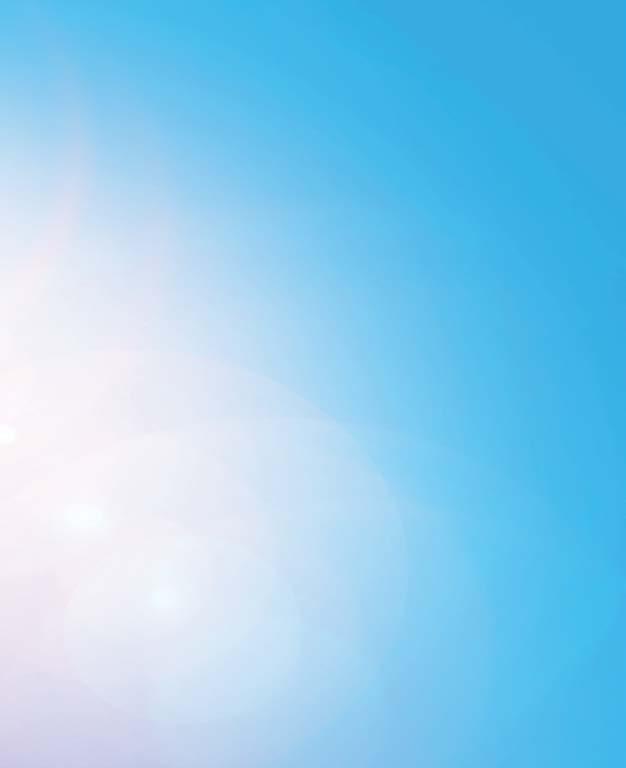

Among Priority Projects:
• Faculty of Medical & Health Sciences
• Biomedical Sciences Building
• School for Environment and Sustainability
• Student Success Center
• Faculty Recruitment Fund
• Scholarship Funds for diversity, needy students and graduate students
• Center for Risks to Democracy
• Center for Traumatic Stress & Resilience
• Center for AI and Data Science
• Center for Quantum Science and Technology
• Center for Healthy Longevity
• Center for Advanced Studies in Humanities
• Center for Advanced Studies in Social Sciences
• Steinhardt Museum of Natural History
• Entrepreneurship Center
• Israeli Arts Center
Annual Report 2024 Tel Aviv University
27
Nano and Quantum: Moving In & Up
TAU is unveiling the Roman Abramovich Building for Nano and Quantum Science & Technology, dedicated new home of the Jan Koum Center for Nanoscience and Nanotechnology
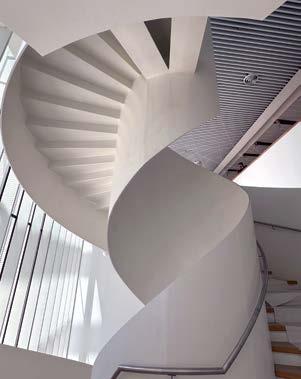
The three-story Abramovich Building offers 7,000 square meters of state-of-the-art R&D space for advanced labs. Altogether, some 120 engineers and researchers from both academia and industry will use the facility as their main hub. The interdisciplinary research will bring together diverse fields including physics, chemistry, biology, neuroscience, medicine, and engineering. Such diversity will directly enhance quality of life, health and the environment, while contributing to a more robust Israeli economy.
More units being unveiled this spring:
• Fred & Mirtha Chaoul and Family Center for Nano-Scale Systems
• Philippe Corrot Graduate Students Office
• Aliza & Meir Grant Researchers Room
• Peter Kraus, M.D. Nanomedicine Floor
• Bervin Visitors Center
• Olsha Family Focused Ion Beam and E-Beam Microscopy Lab
• Barbara Seal, C.M. Study Lounge
• Sagol Center for Regenerative Biotechnology
• Harry Rosenbaum & Shael Rosenbaum Seminar & Conference Room
• Selwyn-Cameron Laboratory
• Wynn/Weinzweig Family Atrium
• Isaac and Ruth Ziskind Nano-Quantum Floor
28
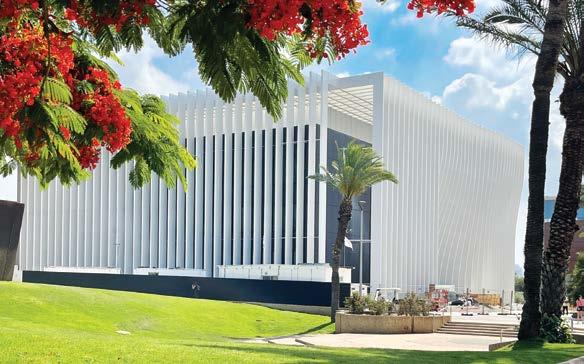
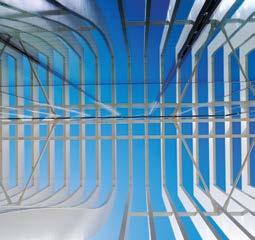
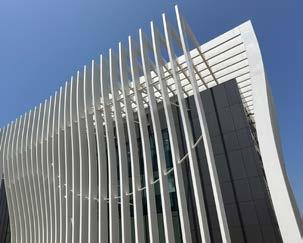
Annual Report 2024 Tel Aviv University 29
The innovative building was designed by French architect Michel Rémon, who was chosen in an international architectural competition from over 128 competitors.
Outstanding Developments
The future of building design starts now
Construction is about to begin on the Azrieli Architecture Building. The 8,000 sq. m. (26,000 sq. ft.) building will serve as the home of TAU’s David Azrieli School of Architecture and is anticipated to be transformative in its impact. It will ensure the School’s growth and success, provide the facilities to expand into exciting new fields, increase the number of faculty members, upgrade research and teaching conditions, and enhance the overall quality of training provided to students. Among the building’s facilities are a stunning entrance floor, laboratories and the Azrieli Architectural Archive – the leading archive of its kind in Israel. Designed by Tsionov Vitkon Architects, the Building’s construction is being supported by the Azrieli Foundation Canada-Israel.
Significantly upgrading medical education on campus

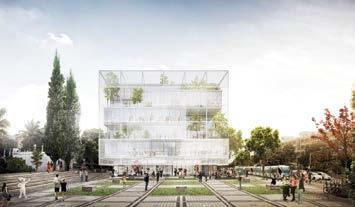
Rewarding exceptional brain researchers
The Faculty of Medical & Health Sciences has received a $12.67 million grant from the Leona M. and Harry B. Helmsley Charitable Trust to build the Helmsley Medical Simulation Center. The state-of-the-art Center will equip medical students with the clinical expertise and communication skills they need to successfully treat patients, manage complex interactions with patients and their families, increase patient safety and improve health outcomes. It is expected to be a dynamic and vibrant facility in use from morning to night by 1,400 medical and dental students, 3,000 MDs and 500 students of nursing, physical therapy and occupational therapy. It will thus support the training of a new generation of skilled, experienced and compassionate medical, dental and healthcare professionals. The grant will be used to plan, build, equip and launch the Center in an existing building on the TAU campus.
The Sieratzki Institute for Advances in Neuroscience has been established at the Faculty of Medical & Health Sciences in memory of Barbara (Batya) and Heinrich (Yehezkel) Sieratzki. Dedicated to supporting talented medical students at the master’s, doctoral and post-doctoral levels and to acquiring advanced core scientific equipment, the Institute will also relaunch the Sieratzki Prize for Advances in Neuroscience, established in 2009 by the late Barbara Sieratzki – a longstanding TAU friend, Governor and Honorary Fellow – and her son Dr. Jechil Sieratzki to recognize and support exceptional young Israeli researchers in the brain sciences. The Institute is anticipated to serve as a catalyst for facilitating excellence in neuroscience research and increasing scientific interaction between research groups.
Annual Report 2024 Tel Aviv University 30
Five more years of Parkinson’s research excellence
The Aufzien family has committed funds for an additional five years of operations at the Aufzien Family Center for the Prevention and Treatment of Parkinson’s Disease, enabling it to continue making world-class strides toward reducing suffering, saving lives and bringing hope to Parkinson’s patients worldwide. The Center aims to prevent Parkinson’s through early diagnosis and intervention that targets the basic mechanisms of the disease from a multidirectional approach. Affiliated researchers focus on deepening understanding of the role of genetics, environment and lifestyle in the onset of the disease, as well as its natural progression. Through a holistic process that spans basic research through to commercialization, the Center tests new drugs and technologies, as well as repurposes existing drugs, with a view to pioneering precision medicine for Parkinson’s.
Applying advanced computational methods to medical care
In collaboration with the Tel Aviv Sourasky Medical Center (Ichilov), TAU launched the Alrov Center for Digital Medicine. The Center harnesses the combined abilities, strengths and experience of the two institutions to promote research on electronic medical records and molecular data, with an emphasis on AI, computational innovation and practical applications. It will award substantial grants to joint research projects between the two institutions, with selected projects benefiting from access to Ichilov’s vast database to advance R&D of novel computational methods for improving diagnosis, treatment and prevention of diseases. The Center will also hold an annual symposium with a view to galvanizing an Israeli research community of digital medicine experts. It will be jointly led by TAU’s Prof. Elhanan Borenstein (Exact Sciences), head of TAU’s Edmond J. Safra Center for Bioinformatics, along with Ms. Liat Nadai Arad, Head of Ichilov’s I-Medata AI Center.
Shaping effective leaders for an ever-changing world
From coping with a global pandemic to navigating Israel through warfare and international turbulence, the last few years and recent events have underlined the importance of exceptional leadership for Israel’s success and resilience. In response to this pressing need, TAU is launching the Barak Center for Leadership, headed by Prof. Udi Sommer (Social Sciences). Named in honor of former Israeli Prime Minister and IDF Chief of Staff Ehud Barak, and with generous seed funding from TAU supporters, the Center is dedicated to cultivating a new generation of leaders across government, politics, civil society and business. The Center will advance research in the field and offer a comprehensive leadership program for outstanding master’s students at TAU’s School of Social and Policy Studies. Its intensive curriculum will equip participants with theoretical knowledge and practical skills – through study tours, immersive bootcamps and exclusive meetings with prominent figures – preparing them to effectively steer complex challenges ahead.
Initiative for treating suicide ideation
TAU is launching the Charles, Evelyn and Sandra Dolansky Research and Treatment Program for Suicide Prevention, an ambitious initiative dedicated to researching and preventing suicide and depression. Headed by Prof. Amit Lazarov (Social Sciences) of the School of Psychological Sciences, the Program will aim to identify novel treatment targets for intervention, develop a new generation of therapeutic approaches, and test and administer them to patients via the University’s clinic at the National Center for Traumatic Stress and Resilience. Research will be conducted by six principal investigators from TAU in collaboration with colleagues at the Douglas Hospital in Montreal, Canada.
AI community at 300-strong
In its first two years of operations, the Center for AI and Data Science, headed by Prof. Meir Feder (Engineering) and supported by the Blavatnik Family Foundation, has logged impressive achievements. It has established 13 groups in diverse fields related to AI, among them Ethics & Law, Urban Planning & Smart Cities and Health & Biomedicine. Affiliated with some 300 faculty members, the Center has organized 55 seminars, workshops and conferences, and has awarded grants totaling $8.2 million to 124 researchers working on 68 projects.
31
Fighting threats to democracy
TAU has launched the Center for Applied Research on Risks to Democracy. Its goal is to identify and diagnose present and future risks to democracy in Israel and design the tools that can address them, thereby renewing trust in the possibility of democratic decision-making and in public institutions. Headed by Prof. Eyal Benvenisti (Law), the Center will promote innovative, applied and multidisciplinary research, foster intersectoral collaboration and knowledge exchange, create policyoriented approaches to meet challenges, develop educational programs for instilling democratic values, empower civil society initiatives, influence local and global discourse on democracy, and promote the resilience of democratic processes in Israel and beyond.
New gap year program fosters leadership
Short for Exploration, Leadership and Innovation, TAU’s new ELI gap year program at the Lowy International School focuses on cultivating academic excellence, college-readiness and leadership skills among high-achieving Jewish students. In addition to offering a vibrant Tel Aviv and Israel experience, the program aims to deepen participants’ understanding of Israel's diverse reality and of their own Jewish identity. All this will equip participants to become influential leaders and advocates for Israel on their college campuses and in their home communities – vital for countering the worrying rise in antisemitic incidents. The program’s course curriculum ranges from Israel and the Middle East to intros to science, entrepreneurship and innovation. Further, it will offer meaningful hands-on volunteer opportunities, study tours and trips alongside Israeli peers. Registration has begun, with the first cohort slated to begin their studies in September 2024.
A promising finding for Huntington’s
There is no disease-modifying therapy currently available for Huntington’s disease (HD), a fatal neurodegenerative condition that affects motor and cognitive function. Current treatments are for symptom alleviation only. Prof. Gerardo Lederkremer (Life Sciences), of the Shmunis School for Biomedicine and Cancer Research and Sagol School of Neuroscience, is developing a novel therapy based on a small molecule, “MK28,” that has strong neuroprotective qualities. Experiments on laboratory models showed strong improvement in grip strength and increased body weight. Glucose levels, which are elevated in HD, were also significantly reduced and lifespan extended. Published in Neurotherapeutics, the study suggests that long-term treatment with MK-28 could be a viable and safe therapeutic approach for HD.
Busy advancing human rights
Since its inauguration in 2023, the Irwin Cotler Institute, headed by Prof. Uriya Shavit (Humanities), and supported by multiple donors, has been devoted to instruction, training, and policyoriented research on human rights, democracy, justice, and the fight against Holocaust denial, antisemitism, and racism at large. The immersive Irwin Cotler Fellowship Program, which brings together 20 international students for inspiring weekly lectures and field trips across Israel, and trains them how to advocate for righteous causes in their home countries, was also successfully held in 2024 despite the Israel-Hamas war. The Institute also organized instructional workshops for policymakers, law enforcement officials, media professionals, and educators in Finland, Latvia, and Bulgaria.
Concept and production: Rava Eleasari • Text: Sveta Raskin, Ruth Fertig, Ruti Ziv, Idit Nirel, Cori Shalit
Graphic Design: Issi Dvir • Photography/Artwork: Moshe Bedarshi, Rafael David Ben-Moshe, Google Images, Bridgit Folman Film Gang, David Polonsky & Michael Faust, Amit Yasur
Administrative Coordination: Cori Shalit • Printing: Sdar Tzalam • Issued by the Development and Public Affairs Division • Tel Aviv University Ramat Aviv 69978, Tel Aviv, Israel
32
TEL AVIV UNIVERSITY
LAY LEADERSHIP WORLDWIDE
ARGENTINA
Polly Mizrahi de Deutsch, President
Argentinean Friends of Tel Aviv University
AUSTRALIA
Roger Mendelson, President
Australian Friends of Tel Aviv University (Victoria)
Andrew Silberberg, President
Australian Friends of Tel Aviv University (New South Wales)
AUSTRIA
Dr. Bernhard Ramsauer, President
Austrian Friends of Tel Aviv University
BRAZIL
Marco Perlman, President
Brazilian Friends of Tel Aviv University
CANADA
Ariela Cotler, National President
Tel Aviv University Canada
David Altshuller, Regional Chair
Ontario and Western Canada
Stewart Litvack, Regional Chair
Montreal
FRANCE
Prof. François Heilbronn, President
French Friends of Tel Aviv University (AFAUTA)
GERMANY
Uwe Becker, President
German Friends of Tel Aviv University
HONG KONG
Sharon Ser, Chairperson
Hong Kong Friends of Tel Aviv University
INDIA
Aaron Solomon, President
Indian Friends of Tel Aviv University
ISRAEL
Yifat Oron, Chairperson
Israeli Friends of Tel Aviv University
MEXICO
Jaime Murow Troice, President
Mexican Friends of Tel Aviv University
NETHERLANDS
Dutch Friends of Tel Aviv University
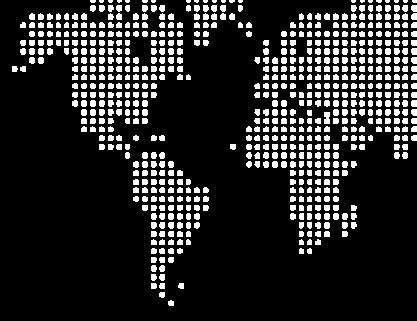
NORWAY
Jan Dante, Chairman
Norwegian Friends of Tel Aviv University
PORTUGAL
Lucienne Kampel, President
Portuguese Friends of Tel Aviv University
SOUTH AFRICA
Jonathan Osrin, Chairman
South African Friends of Tel Aviv University
SPAIN
Patricia Nahmad, President
Isaac Querub, Honorary President
Spanish Friends of Tel Aviv University
SWEDEN
Peter Seideman, President
Swedish Friends of Tel Aviv University
SWITZERLAND
Patrick Loeb-Meyer, President
Swiss Friends of Tel Aviv University
UK
David Meller CBE, Chairman
Tel Aviv University Trust
Glen Watson, Chairman, Scottish Group
Tel Aviv University Trust
URUGUAY
Bettina Szames, President
Uruguayan Friends of Tel Aviv University
USA
Dr. Garry Rayant, National Chairman
American Friends of Tel Aviv University
Annual Report 2024 Tel Aviv University
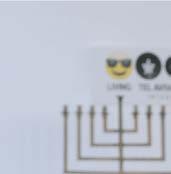
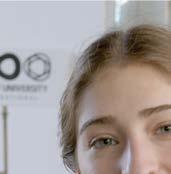

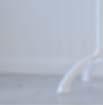







There can be no opportunity more promising than this for a young Jewish person today.
Nathan Sharansky, Chairman of the Jewish Agency
The ELI Program is unique because it equips our youth with leadership skills and strengthens their Jewish identity, all within a world-class academic environment.
Ronen Hoffman, ELI Program Head and Former Israeli Ambassador to Canada
Program Dates 2024–2025
Gap Year: September 8 – May 22
Fall Semester: September 8 – December 20
Spring Semester: January 22 – May 22
Deadline to apply: May 30, 2024
Register for Fall 2024: https://international.tau.ac.il/eli-gap-year


ELI ACADEMIC GAP YEAR
Israel’s first framework to empower students in leading our global Jewish communities forward
For more information please email: gapintl@tauex.tau.ac.il
“ THE JEWISH WORLD TODAY NEEDS A NEW GENERATION OF LEADERS ”
INTRODUCING THE NEW






































































